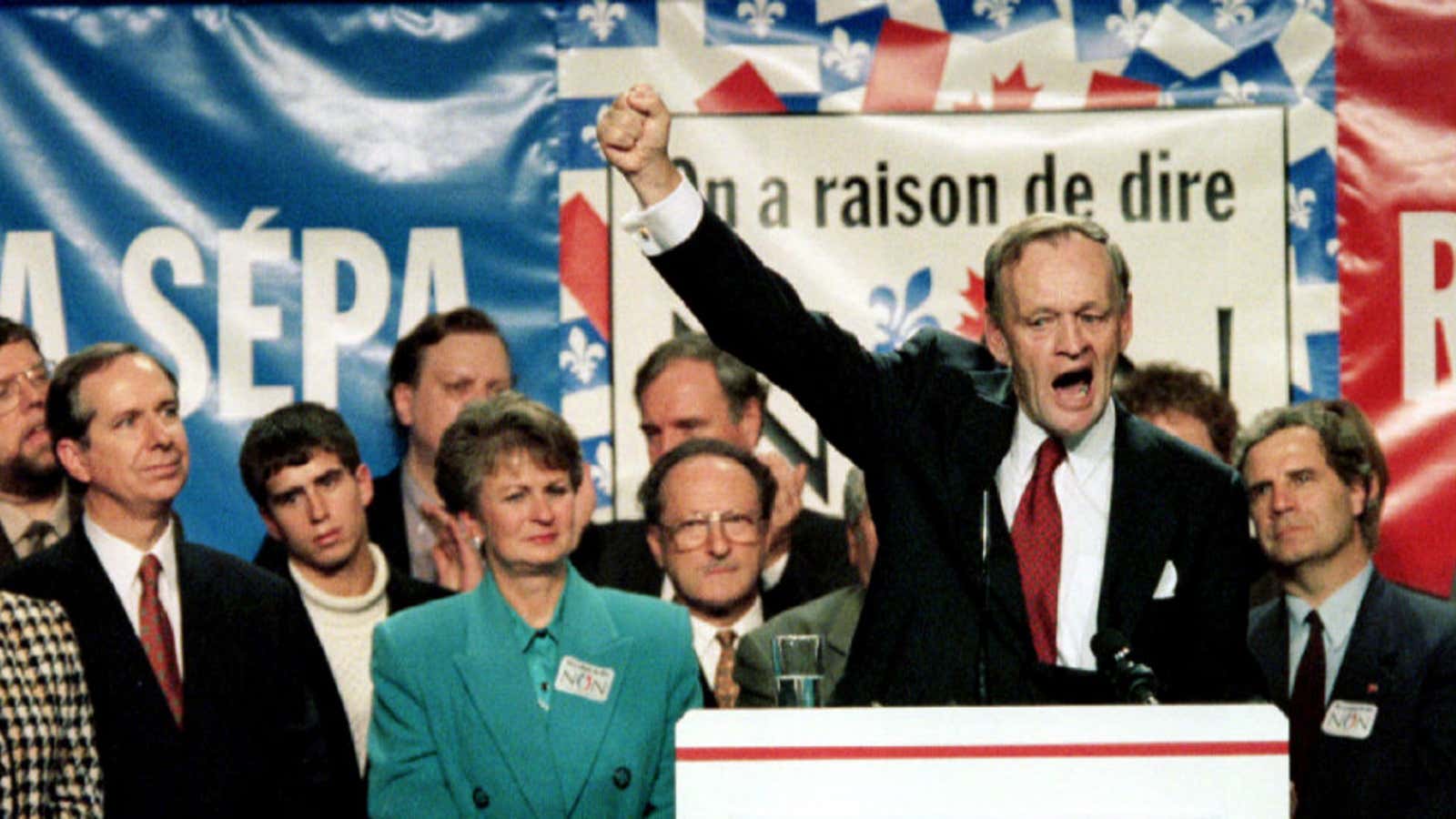You probably saw some long faces on Sept. 18 after the urns were counted in Aberdeen and Inverness and Lochaber and Edinburgh, and the numbers were found to be several percentage points shy of a majority. The dream of Alex Salmond had been evidently dashed, and all those rallies, TV advertisements, and interviews with the cast of Braveheart had apparently been for naught. Twitter was speckled with petty victory dances about how the Scots were probably not be to trusted with a country anyhow, including a surprising one by Glaswegian superstar historian Niall Ferguson, who fretted that his home country would become Europe’s Afghanistan without the steadying hand of their auld colonial betters. Surely, some think, this was just one giant political farce, a waste of time that will warn off future secessionists from dreaming of their own seat at the table of international leadership.
This morose view of last week’s events fails to seize upon a significant implication: Scotland, as a result of the Scottish National Party’s efforts, is closer to independence than it has been since the Battle of Colodin. The post-modern version of national independence tends to come in small steps, changing the infinitely complex global system a bit at a time rather than by “kicking the bastards out” and throwing up a new flag. Scotland is likely to reap a series of concessions from its southern neighbor, the one which just proclaimed filial love for its tartan-clad supposed equal. It will receive independence, though probably not the sort we have come to expect from the geopolitics of the 18th through 20th centuries.
To consider what the subtle version of independence might resemble in the years to come, the best comparison is the nation of Quebec and its relationship to federal Canada after decades of tumultuous agitation toward sovereignty. Compared to what the Québécois experienced as a minority population in their own country, the Scots have little reason to bolt for the secessionist doors. English colonists had no more intrinsic rights to the province of Quebec than their French rivals, but they certainly ended up with all the political, economic and military power. For centuries, the English ran the show, even though the French wielded what is called la revanche du berceau or the revenge of cradle, which used the famous Catholic fecundity to keep the English a demographic minority. For their part, the English were able to maintain places like Montreal, the most important city in Canada, covered in English billboards and Anglo power structures while the people all around them complained bitterly in the joual dialect of French. As the rest of the world violently shook up the social order in the late 1960s, so did the Québécois finally make it clear they would not ignore their rights to self-determination. What came to be known as la Révolution Tranquille, the Quiet Revolution, won major concessions from Ottawa with a minimum of strife.
Unsatisfied, the nationalist movement in la belle province continued to push for referendums on total independence. These took place in 1981 and 1995, with the latter coming within a single percentage point of a majority. There have been major shifts since then. This nationalism sent many businesses to Ontario out of fear of further instability. The referendums led to major changes in Quebec’s healthcare and educational systems, as well as important language laws, such as billboards and documentations legally required to include a certain amount of French. They also peaked the level of tension between the English and French in general.
But in the aftermath, something counterintuitive has emerged: Quebec has enough sovereignty that full nationalism is on the wane. Prior reforms have convinced all but the most ardent nationalist that there is not much more to gain. The aftermath of the referendums 20 years on is far from negative for either camp. The Québécois are maîtres chez eux, or masters in their own home, and if anything Montreal is more of a global city than it was before; its economy, creative scene, tech startups and industrial sectors have never been better in history. The province currently benefits from federal Canada while escaping the acrimony over centuries-old subjugation. It is probably superior to what would have resulted from a shattering of the Canadian federation.
If we look at Quebec’s situation as analogous to their peers across the Atlantic, even last week’s no vote would mean that Scotland gains more sovereignty over key matters in its ancient homeland. The Scottish people have declared themselves to the world as masters of their own destiny—a distinct people, even if not a nation-state with a seat at the UN. Westminster would be foolish to treat this movement as insignificant lest it face another referendum with more determined voters in just a few years. So Alex Salmond’s movement could be light years beyond some failed political stunt, but indeed the first step in post-modern national independence. And frankly, as the Québécois discovered, that might be much more valuable than having to print all new currency.
